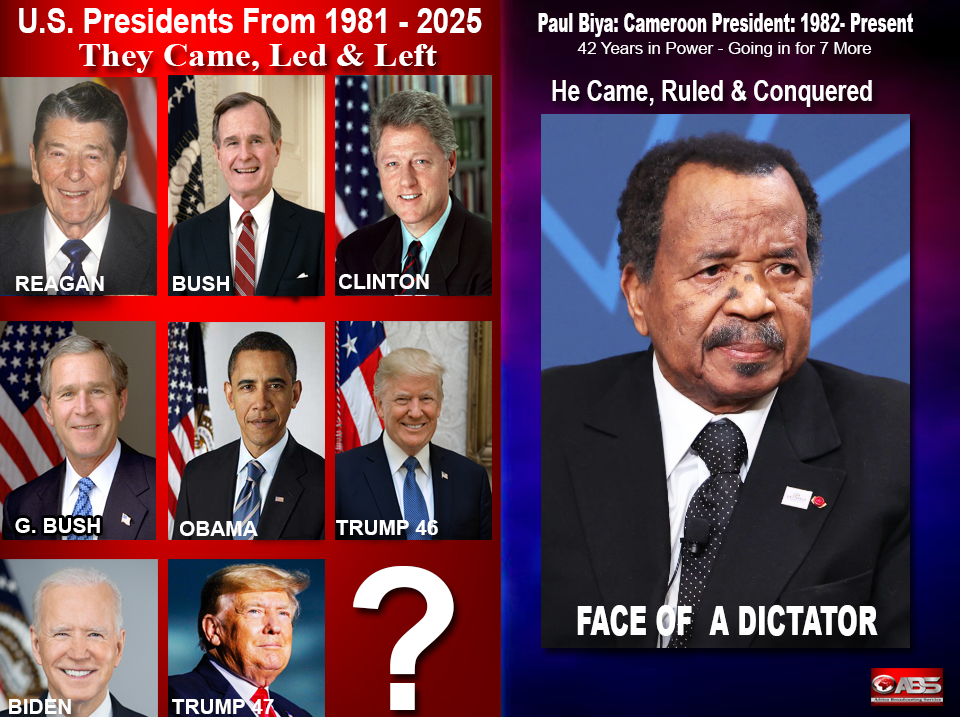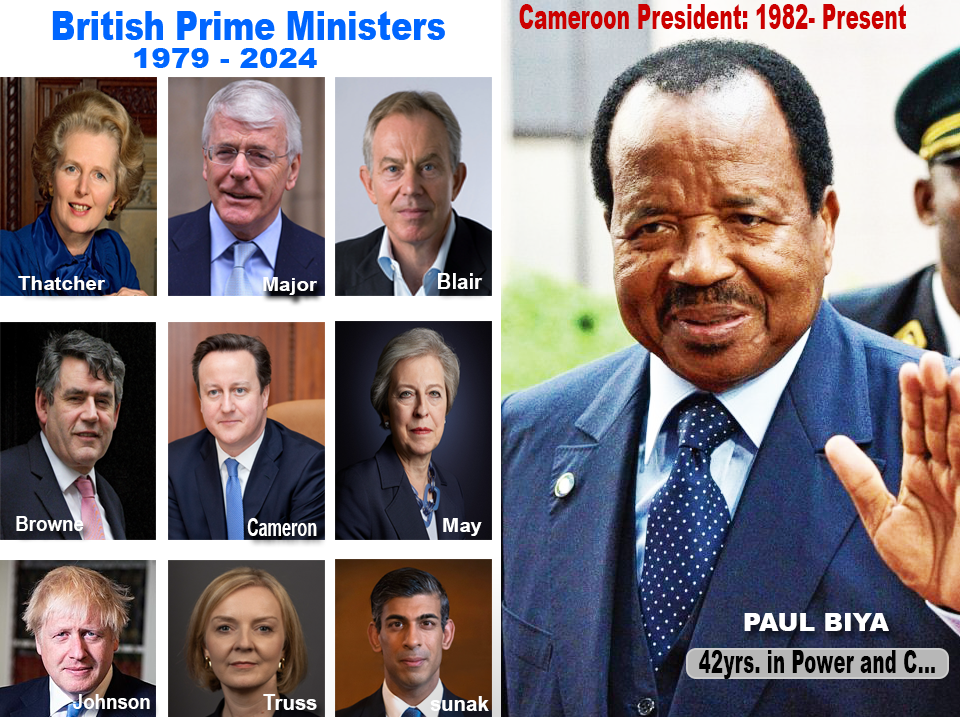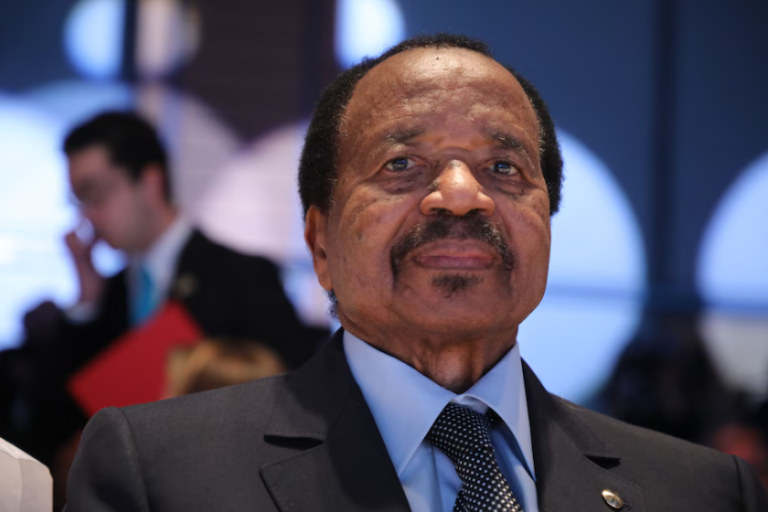In the chronicles of global leadership, American presidents come, lead, and leave. The dignity of democratic transitions, the acceptance of mortality and human frailty, and the embrace of generational renewal define their exits. But in Cameroon, Paul Biya came, ruled, and conquered—seizing power like a medieval monarch and refusing to let go, even at the crumbling age of 92. As 2025 dawns, with the specter of yet another election in Cameroon, Biya is not only still in power but is maneuvering to extend his stranglehold for another seven years.
A man whose tenure has outlived multiple generations of Cameroonians, Biya has been at the helm of power for 42 years as President and served as Prime Minister for over 15 years before that. His name has become synonymous with authoritarianism, absolute control, and a brand of governance that rewards loyalty over competence, silence over dissent, and repression over freedom. His rule has transformed Cameroon into a land where democratic principles are mere window dressing, and elections serve only to rubber-stamp the perpetuation of his dynasty.

A Presidency Defined by Physical and Mental Decay
At 92, Biya is a shadow of his former self. Frail, visibly exhausted, and often disoriented, he no longer possesses the cognitive or physical ability to lead a nation. Unlike U.S. President Joe Biden—who, despite being 81, recognized the limitations of age and gracefully stepped aside for a younger successor—Biya remains adamant, his inner circle propping him up like a puppet. His desperation to hold onto power, despite his failing health, is a national disgrace and an international embarrassment.
The starkest evidence of Biya’s cognitive decline came in 2022 at the U.S.-Africa Leaders Summit in Washington, D.C. During the event, the aging dictator—oblivious to the presence of world leaders and dignitaries—was caught on a hot mic, confusedly asking where he was. As the conference hall buzzed with the presence of key figures shaping Africa’s future, Biya sat lost, detached, and bewildered. He repeatedly inquired about the presence of “important personalities” and “celebrities,” his words betraying a mind that could no longer grasp the gravity of the moment. Even more humiliating, he reportedly passed gas multiple times while on stage, leaving his delegation cringing in shame and the entire hall in stunned disbelief.
This was not the performance of a leader fit to govern a country. It was the public unraveling of a man who has stayed past his time, held in place only by the sycophantic machinery of a regime unwilling to let go of power.
A Nation Stuck in Time
Under Biya, Cameroon has been robbed of its future. The country remains economically stagnant, with rampant corruption, unemployment, and deteriorating infrastructure. While Cameroonians suffer, their so-called leader spends most of his time in Switzerland, governing remotely from luxurious hotels while his nation crumbles. His extended absences have become so routine that when he does make a public appearance, it often sparks rumors that he has risen from the dead.
Internationally, Cameroon has become a case study in dictatorship, a nation where elections are mere formalities, opposition voices are silenced, and governance is an exercise in nepotism and self-preservation. The Ambazonian conflict continues to rage on, fueled by Biya’s refusal to engage in meaningful dialogue, his brutal military crackdowns, and his reliance on French backing to suppress dissent.

Biya’s decision to seek yet another term is proof of the depth of his regime’s moral and political decay. At 92, his bid for re-election is not about leadership—it is about survival. It is about ensuring that the network of cronies who have pillaged Cameroon for decades continue to enjoy their ill-gotten wealth. But how long can this charade last? How much longer can Cameroonians watch their nation wither under the grip of a man who no longer knows where he is?
If history has taught us anything, it is that no dictatorship lasts forever. Whether by force of nature, the will of the people, or the inevitable march of time, Paul Biya’s reign will end. The only question is: Will it be on his terms, or will Cameroon rise and reclaim its destiny from a man who has long outlived his relevance?
The world watches, the people suffer, and Biya clings to power. But for how much longer?

